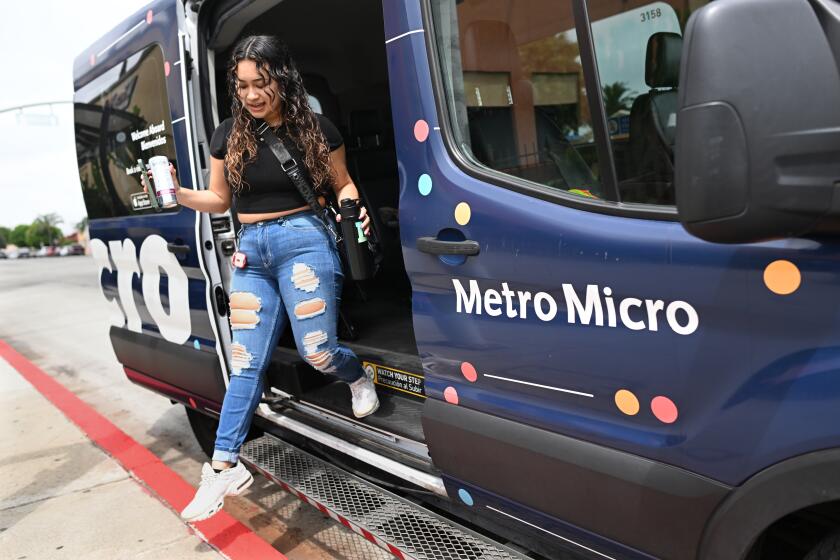Hidden grave marker uncovered in Lawndale backyard could derail Metro C Line extension plans
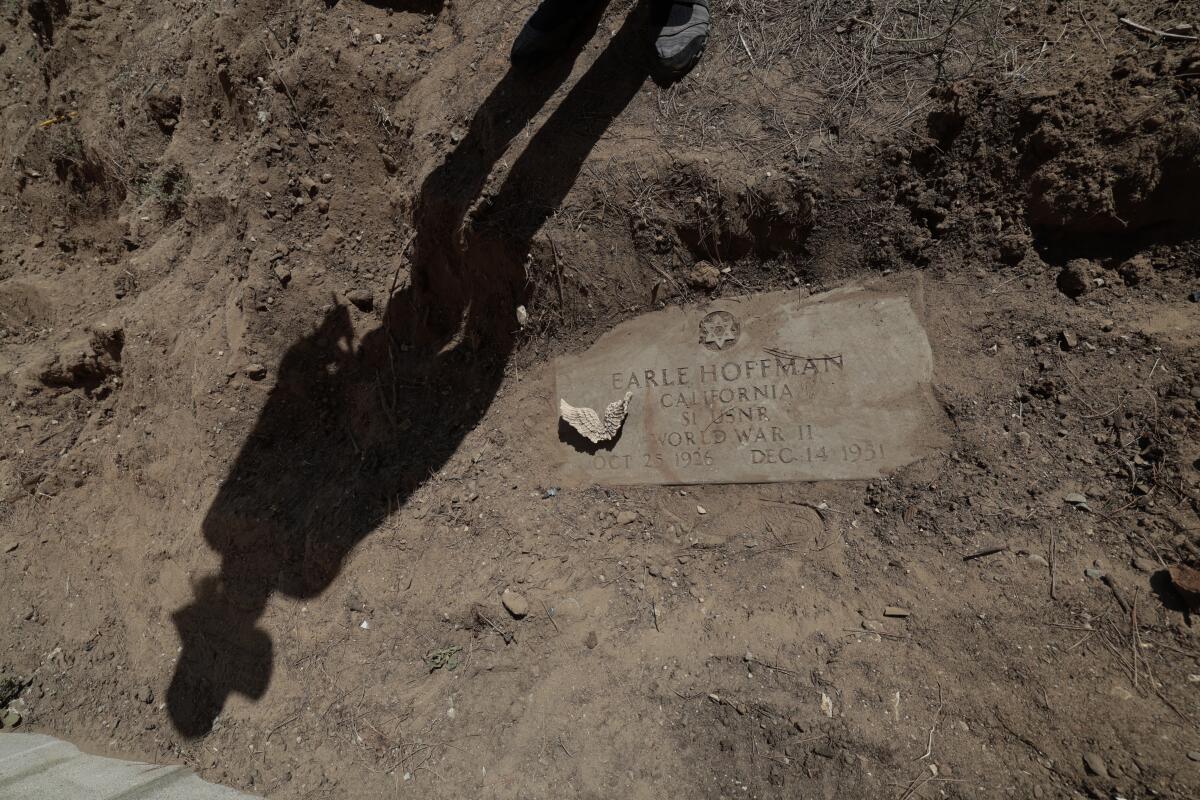
- Share via
Jay Gould said for years there were graves in the backyards of his neighborhood in Lawndale, part of what his father told him was an old burial ground.
But people doubted it. These supposed graves just happened to be in the right-of-way of a proposed 4.5-mile Metro C Line extension route that Gould was a fierce critic of, and would take away a chunk of his yard. The discovery of human remains would certainly delay the agency’s plans, if not force Metro to reexamine the route.
This week, Gould, 70, asked his neighbors if he could look for tombstones.
“I grabbed a shovel and I started digging,” he said.
One of the first drops of the shovel, at his next-door neighbor’s house to the south, hit stone less than three inches deep. He swept the dirt off and there it was: a flat marker etched with a star of David, above “Earle Hoffman, California, S1 USNR World War II, Oct 25, 1926 to Dec. 14, 1951.”
“I felt relieved. I knew it was there,” he said. “I had to prove it to myself and everyone.”
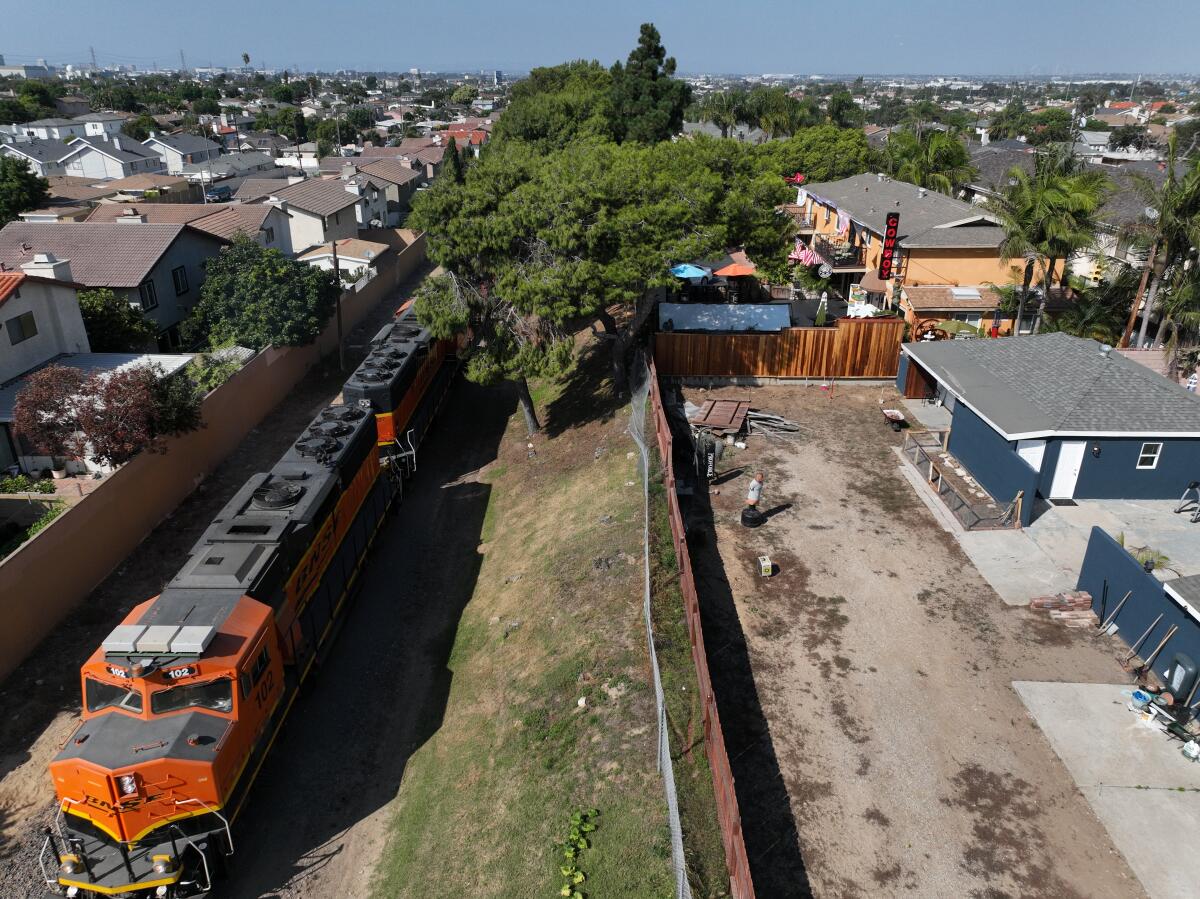
The finding could throw off planning for the C Line Extension to Torrance. The Los Angeles Metropolitan Transportation Authority hoped to finalize a route by next month and complete it by 2033, but the discovery could force officials to reexamine the routes. The vote to determine the route is now scheduled for next year.
“If it is confirmed the potential burial site is on Metro property, Metro would use on-call archeological and paleontological experts to determine if there are human remains,” Metro spokesperson Patrick Chandler said in an emailed statement. “If human remains are discovered, Metro will follow the California Health and Safety Code provisions and provide updated information on any further investigations that are necessary.”
There are two primary routes the transit agency is looking at. The Metro said the route along Gould’s property is favored by residents, based on comments collected during an environmental analysis. It would cost from $2 billion to $2.8 billion, depending whether a trench was constructed and would run along existing railroad tracks from the now terminus of the Redondo Beach station to Redondo’s Transit Center and ending at the Torrance Transit Center.
Riders love the clean, quick, on-demand van service. But its costs are forcing difficult questions among transit officials faced with shrinking budgets and underserved riders.
The second route runs along the 405 Freeway turning onto Hawthorne Boulevard with a stop at the South Bay Galleria and also ending at the transit center. The train would be elevated and run down the middle of the boulevard.
The discovery comes as Metro is continuing a massive rail extension across the region and, in many cases, meeting with officials and community members angry over proposed routes across the Westside and South Bay.
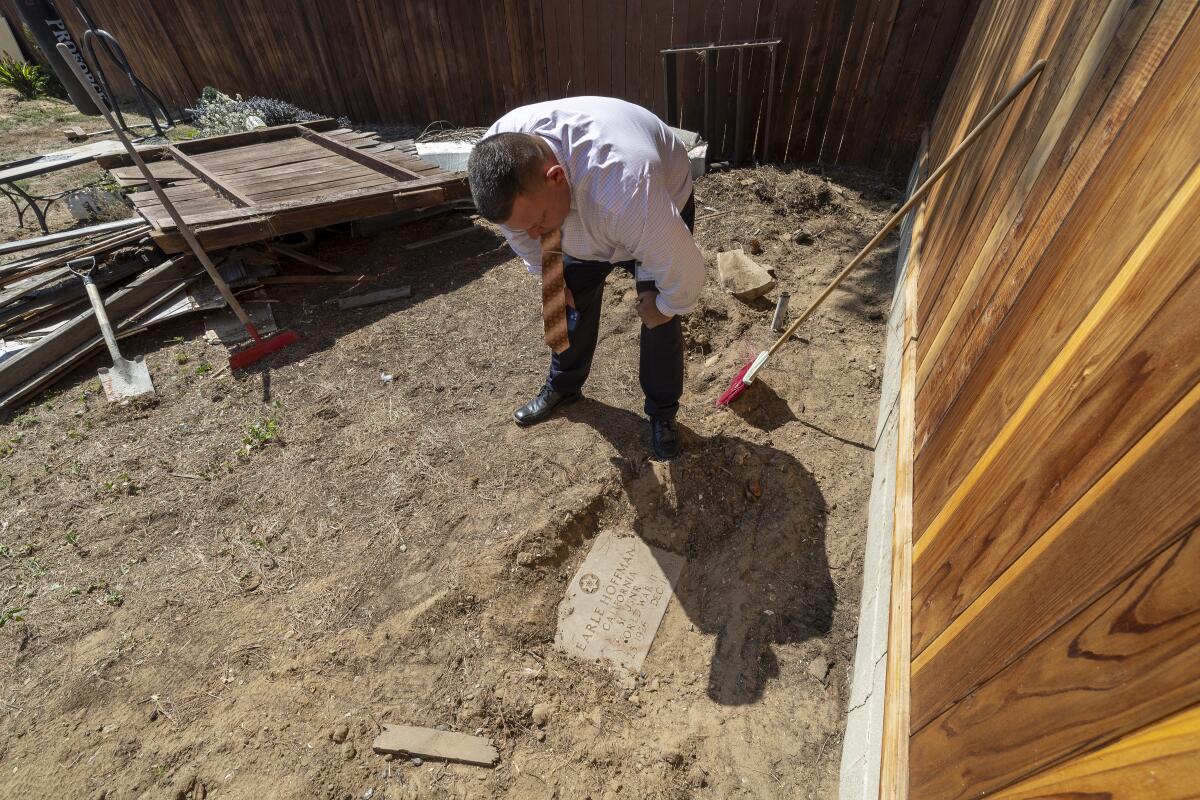
Metro’s own environmental analysis of the land released found no anticipated finding of human remains associated with cemeteries. Gould said Metro brushed him off when he warned about the graves.
An obituary in the Venice Evening Standard on Dec. 17, 1951, said Hoffman was born in Santa Monica, grew up in Venice and was a “well known youth leader” who was active in the Jewish service organization B’nai B’rith. He had a wife named Shirlee and a 9-month-old son named Ronald. He died at Veterans Hospital and his services were held at Hillside Memorial Park, the Jewish cemetery in Culver City. An application to the government, filed by Shirlee for a flat granite marker, also lists Hillside as his cemetery.
How the marker ended up seven miles away in Lawndale is unclear.
“This is bizarre,” said Cory Cohen, 65, Hoffman’s nephew. “I thought this was an AI scam. In our mind, he has been buried at Hillside since two days after he passed away.”
“I have been visiting his gravesite since I was a little kid,” he said. Hoffman is buried next to his 5-year-old son, who died after a drunk driver hit the car in which he was a passenger. “This is going to be an interesting story that unfolds.”
But it would not be the first time that the Metro failed to anticipate burial grounds. Workers digging an eastern extension of what is now the E Line in 2005 in downtown Los Angeles found the skeletal remains of 108 people. The mass grave of mostly Chinese immigrants was believed to be one of the first cemeteries for the poor.
“I had asked Metro about this last week and they said they didn’t have any records about cemeteries along the route over the last 100 years,” said Lawndale City Manager Sean Moore. “A potential burial ground could be a significant finding.”
Gould, whose family has owned several properties in the area over the decades including the one where the tombstone was found, said it was another reason to choose a different route.
“My dad told me there were 17 graves out there and I always said, ‘yeah, right.’” he said. But he said about 15 years ago, after his brother sold the property on the south side of Gould’s home, a tombstone with the name Hoffman was unearthed when a neighbor was planting his garden.
At the time, they called then Mayor Harold Hofmann to show him.
“He looked over the fence. And he says, ‘Cover it up. We don’t want to deal with this. This is going to be terrible. They’re gonna want to tear up your property,’” Gould said. “I said OK and we covered it up and let it go.”
He later said his wife heard the neighbor breaking up headstones and believed that at least six have been trashed. Hofmann has since died, as has that neighbor.
“We never said a word,” he said. “We didn’t say a word for all this time.”
Then came the proposed route.
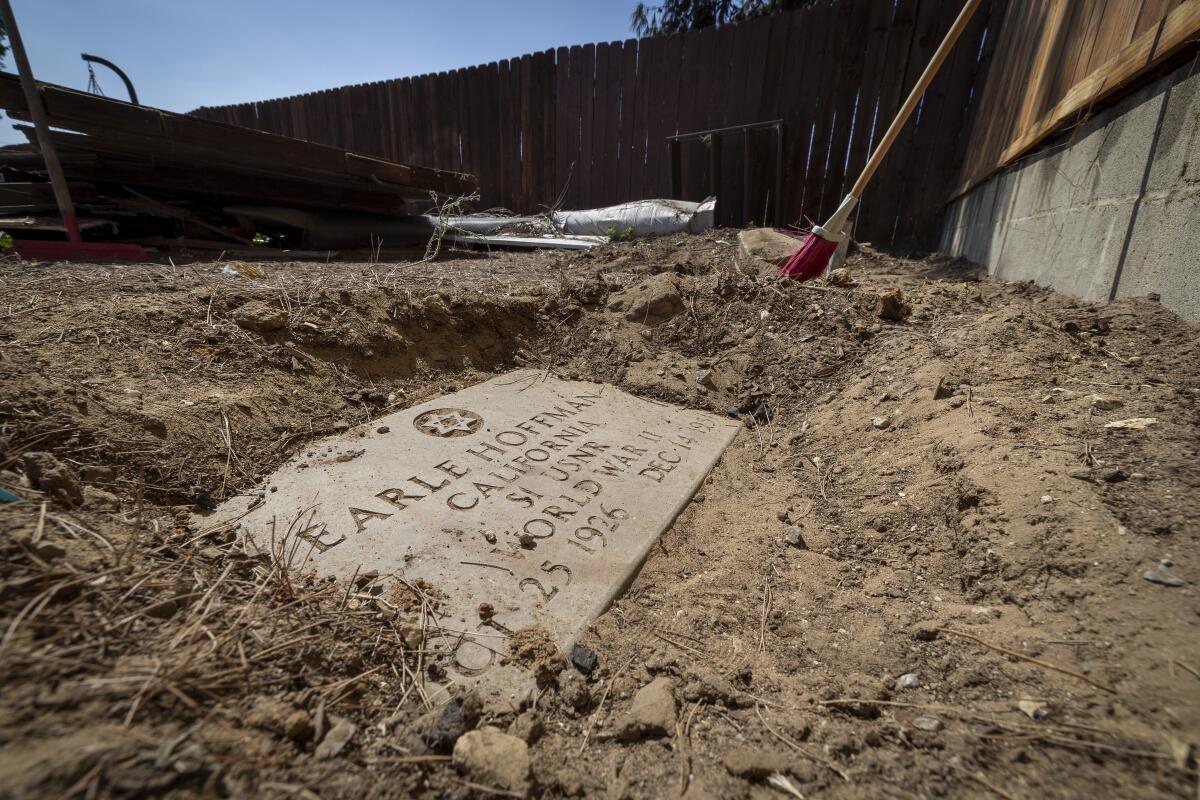
It would run along a right-of-way that Metro has along the railroad tracks. Those tracks run along Gould’s backyard and his neighbors’. For years the right-of-way had been leased out by the railroad companies. But that stopped when it was sold to Metro, Gould said.
Lawndale long opposed the project, but recently backed a second alternative route that would run along Hawthorne.
“This is an unsafe option,” said Josh Standifer, who currently owns the property where the marker was found. “People have been fighting against this in silence. ... This is giving people awareness.”
Standifer said he hopes a rail line is eventually built, but along Hawthorne Boulevard.
More to Read
Sign up for Essential California
The most important California stories and recommendations in your inbox every morning.
You may occasionally receive promotional content from the Los Angeles Times.

